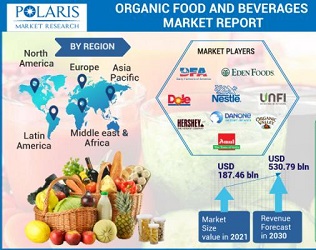BY ANDUALEM SISAY GESSESSE – In recent years the Government of Ethiopia has given attention to agriculture identifying key products. Among the major items identified by the Ministry of Agriculture includes increasing production of the major crops such as wheat, teff, maize, sorghum and the like. It also identified fruits like avocado, papayas, banana etc.
The new strategy being implemented by the Government focuses on cluster farming (bringing smallholder farmers who own from a fraction to a few hectares together and use modern farming technologies tractors and combiners etc.). Such cluster farming technique has proven to decrease wastage during harvest and increased productivity.
In addition, the government has also focused on irrigation farming to efficiently utilize water resources of the country. As a result, hundreds of thousands of hectares of arable lands which were never used for agriculture in areas such as Afar, Somali and other regions of Ethiopia, are used for growing wheat and other crops and fruits.
When it comes to fruits many companies have been engaged for over a decade in exporting fruits to mainly the neighboring countries and the middle east. In addition, starting a few years ago an Israeli variety avocado has also been promoted among smallholder farmers in Ethiopia and joined the export market though the volume is not that significant.
The Government of Ethiopia has expressed its intent to commence exporting the surplus produce mainly wheat after assuring food security and ending food import and receiving food aid, which many consider as weapon of neo colonization by the Western countries whose attempt to colonize Ethiopia failed many times after the Berlin Conference.
These recent agricultural success stories show the potential of the country to further expand its agricultural production exploring new opportunities as Ethiopia still has millions of hectares of arable land like most African countries such as, Tanzania.
One of the opportunities Ethiopia may tap into can be increasing its global organic food market share. The latest report by the European Union shows that Ethiopia, Tanzania and São Tomé and Príncipe are the few African countries found in the list of producing organic foods.
In Ethiopia it is stated that some 220,000 farmers are engaged in production of organic cash crops mainly coffee, oilseeds and cotton.
Using the best practices from these cash crops, Ethiopia has the opportunity to start producing organic crops and fruits and vegetables for the global organic food and beverages market, which is estimated to reach over half a trillion by 2030 from 187 billion in 2021.
In addition to organic cash crops, grains, vegetables and fruits, Ethiopia can also design a new strategy to utilize its abundant animal resources and produce some of its cattle, sheep, got and chickens using organic farming techniques targeting export market and high-income people in the country, who are now highly conscious about their health.
As we all know the developed world introduced organic food after its citizens realized the fact that the food they consumed, which is produced in unnatural way, has been affecting badly their health making them victims of deadly diseases such as cancer.
As a result, the junk foods such as burgers and genetically modified foods are being abandoned by the high-income people in the world, which are willing to pay extra / premium for healthy organic foods.
Now most of these junk foods in the developed world are left for the poor low-income people in developed countries like the United States of America.
By the way as they say business is solving a problem, let’s not forget that the millions of people who get cancer and other diseases as a result of consuming these junk foods are lucrative businesses for multinational pharmaceutical companies of these countries.
So, it will not be easy for countries like Ethiopia and Tanzania to penetrate into the global organic food market in the face of these giants who can easily lobby their governments and make difficult the import of organic foods to their countries.
Besides, let’s also not forget the fact that agrochemicals, pesticides and chemical fertilizers being used for producing nonorganic foods in the world are being manufactured by a handful of multinational corporations of the developed world.
So, restrictions and tough criterions are expected to put in place to keep away organic foods from entering the developed world from Africa to protect the business interests of their conglomerates.
Does than mean Ethiopia and Tanzania ignore their potential to increase their market share in the global organic food market? No! I don’t think one has avoid sleeping in fear of a nightmare. Because the future is organic / healthy food.
After becoming self-food sufficient, countries like Ethiopia and Tanzania have to make at least a quarter of their agriculture organic / healthy for at least three reasons.
One, to cut their spending on treatment and importing of medicines to treat their growing number of people suffering from noncommunicable diseases such as cancer caused by unhealthy foods.
Two, to cut the growing hard currency spending of developing countries for importing agrochemicals and pesticides, which are not only hazardous to human and animal health, but also environmentally pollutant and dangerous.
Three, to serve / benefit from the growing local demand of health-conscious middle- and high-income people in their countries who otherwise will be willing to import healthy foods from abroad.
I think it is time for African countries with huge agricultural potential such as Ethiopia and Tanzania to start thinking about the future global food market – organic/ healthy food and design a sustainable food production and marketing strategy.

